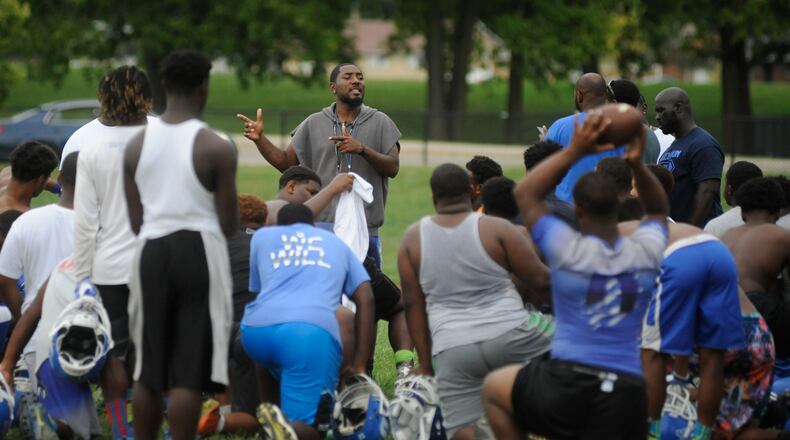Dunbar’s first academic quarter ended Oct. 13, and that quarter’s grades began determining eligibility on Oct. 21. The player’s grades made him ineligible, but he played in Dunbar’s wins over Cincinnati Taft on Oct. 21 and over Belmont on Oct. 28, causing Dunbar to forfeit those games and miss the playoffs.
RELATED: Dunbar coaches say they were told to lose
Multiple district employees told DPS security director Jamie Bullens that the first mention of the student’s ineligibility came from staffers of Dunbar’s Oct. 28 opponent, Belmont High School. In an Oct. 31 interview with Bullens, Belmont football coach/athletic director Earl White said he heard about the player’s ineligibility from a Belmont teacher, then mentioned the issue to Belmont Principal Melanie Walter around noon on the day of their game.
Walter told Bullens she passed the information on to Dunbar principal Crystal Phillips.
“I expressed to her (colleague to colleague) I didn’t have proof, but wanted her to know what was being said so if she chose to do anything about it, she could,” Walter said in an Oct. 31 interview with Bullens.
The Dunbar player was taking classes on a block schedule – his three main classes were the equivalent of two periods (or credits) each, so that a full-credit course can be completed in one semester.
RELATED: DPS, state investigations focus blame differently
Then-Dunbar Athletic Director Pete Pullen told Bullens that the student passed Geometry and Spanish, but failed English. That meant he passed four credits, when the requirement for eligibility is five. The student also passed a physical education class, but that is not a full-credit class, so the student was short of the five credits needed to be eligible.
Pullen told Bullens he was calculating the student’s eligibility based on his GPA and thought he was eligible. Dunbar football coach Darran Powell told Bullens he didn’t know gym classes counted differently. Districtwide Athletic Director Mark Baker told Bullens he had no experience with block schedules outside of a single workshop in Columbus last year. OHSAA bylaws list school principals as primarily responsible for oversight, but Phillips’ interview indicates she wasn’t aware of the problem until Walter called.
“Hindsight is always 20/20, so if I could go back and change it, I would,” Powell told Bullens. “I should’ve listened to my principal and not played him because she was adamant about him not playing.”
Pullen also accepted some blame in his interview for playing the student.
RELATED: Forfeits knocked Dunbar, Piqua out of playoffs
Phillips was adamant with Powell and Pullen about the student not playing, but she told Bullens there were communication issues between her and Baker. Both of them said that when Baker asked Phillips about the player’s eligibility just before the Belmont game, she told him she didn’t know for sure, and asked what Pullen had said about it.
That led to a conversation between Pullen and Baker, who called a Columbus school athletic director for advice. There is disagreement between the parties about who actually gave the OK for the student to enter the game.
White, the Belmont AD, told Bullens the first thing athletic directors are trained on is eligibility procedures.
“Everybody knows with PE it only counts for ¼ credit and you’re on a block schedule, you can’t fail another class or you won’t be passing enough credits,” White said. “So with them having the report card in their face looking at it, I don’t understand how anyone over there could have thought, with that information prior to the game, this young man was eligible.”
About the Author

